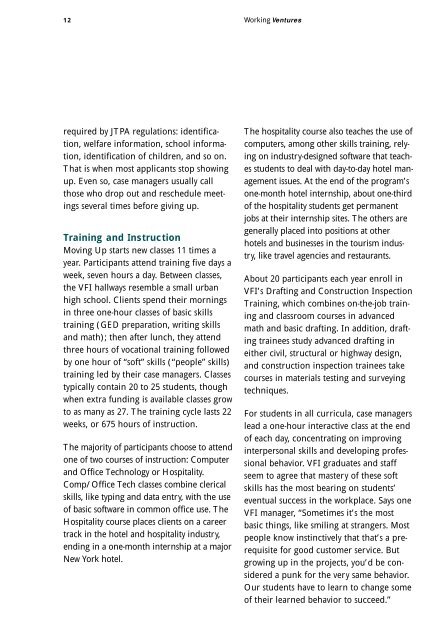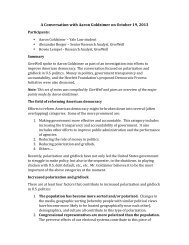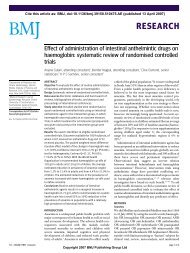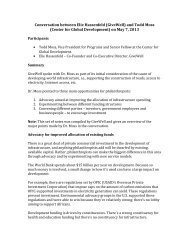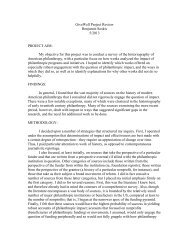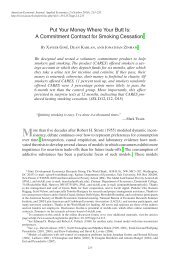Getting In Staying On Moving Up - GiveWell
Getting In Staying On Moving Up - GiveWell
Getting In Staying On Moving Up - GiveWell
You also want an ePaper? Increase the reach of your titles
YUMPU automatically turns print PDFs into web optimized ePapers that Google loves.
12 Working Ventures<br />
required by JTPA regulations: identification,<br />
welfare information, school information,<br />
identification of children, and so on.<br />
That is when most applicants stop showing<br />
up. Even so, case managers usually call<br />
those who drop out and reschedule meetings<br />
several times before giving up.<br />
Training and <strong>In</strong>struction<br />
<strong>Moving</strong> <strong>Up</strong> starts new classes 11 times a<br />
year. Participants attend training five days a<br />
week, seven hours a day. Between classes,<br />
the VFI hallways resemble a small urban<br />
high school. Clients spend their mornings<br />
in three one-hour classes of basic skills<br />
training (GED preparation, writing skills<br />
and math); then after lunch, they attend<br />
three hours of vocational training followed<br />
by one hour of “soft” skills (“people” skills)<br />
training led by their case managers. Classes<br />
typically contain 20 to 25 students, though<br />
when extra funding is available classes grow<br />
to as many as 27. The training cycle lasts 22<br />
weeks, or 675 hours of instruction.<br />
The majority of participants choose to attend<br />
one of two courses of instruction: Computer<br />
and Office Technology or Hospitality.<br />
Comp/Office Tech classes combine clerical<br />
skills, like typing and data entry, with the use<br />
of basic software in common office use. The<br />
Hospitality course places clients on a career<br />
track in the hotel and hospitality industry,<br />
ending in a one-month internship at a major<br />
New York hotel.<br />
The hospitality course also teaches the use of<br />
computers, among other skills training, relying<br />
on industry-designed software that teaches<br />
students to deal with day-to-day hotel management<br />
issues. At the end of the program’s<br />
one-month hotel internship, about one-third<br />
of the hospitality students get permanent<br />
jobs at their internship sites. The others are<br />
generally placed into positions at other<br />
hotels and businesses in the tourism industry,<br />
like travel agencies and restaurants.<br />
About 20 participants each year enroll in<br />
VFI’s Drafting and Construction <strong>In</strong>spection<br />
Training, which combines on-the-job training<br />
and classroom courses in advanced<br />
math and basic drafting. <strong>In</strong> addition, drafting<br />
trainees study advanced drafting in<br />
either civil, structural or highway design,<br />
and construction inspection trainees take<br />
courses in materials testing and surveying<br />
techniques.<br />
For students in all curricula, case managers<br />
lead a one-hour interactive class at the end<br />
of each day, concentrating on improving<br />
interpersonal skills and developing professional<br />
behavior. VFI graduates and staff<br />
seem to agree that mastery of these soft<br />
skills has the most bearing on students’<br />
eventual success in the workplace. Says one<br />
VFI manager, “Sometimes it’s the most<br />
basic things, like smiling at strangers. Most<br />
people know instinctively that that’s a prerequisite<br />
for good customer service. But<br />
growing up in the projects, you’d be considered<br />
a punk for the very same behavior.<br />
Our students have to learn to change some<br />
of their learned behavior to succeed.”


